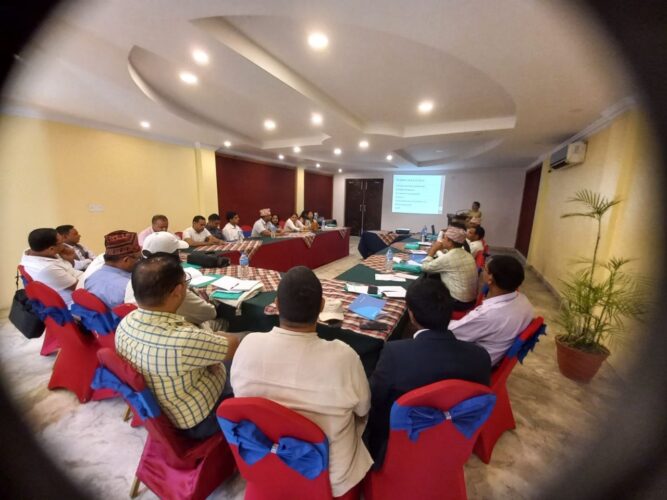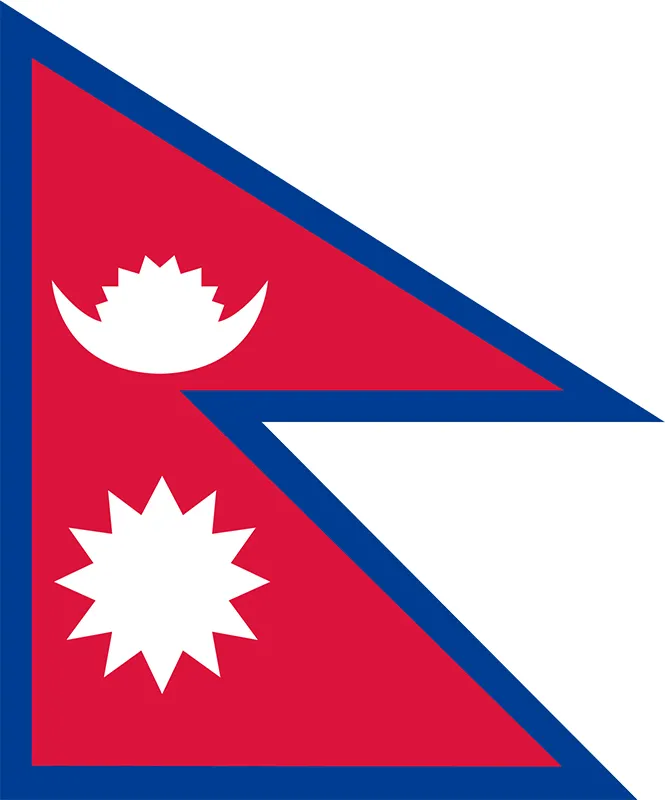The International Commission of Jurists (ICJ), in coordination with its local partner Advocacy Forum (AF) and Nepal’s Office of the Chief Attorney (OCA), held a two-day capacity building workshop for the members of the local detention Monitoring Committee, government officials, and human rights defenders in Sudurpaschim Province on 31 May-1 June 2023. The objective of the workshop was to impart knowledge and exchange views on effective monitoring of places of detention and documentation mainly of cases torture and other ill-treatment in detention with a view to facilitating prevention and redress.
Torture and other cruel, inhuman or degrading treatment are absolutely prohibited under international law and the Constitution of Nepal. Nepal’s Penal Code criminalizes “physical or mental torture or cruel, inhuman or degrading treatment” against persons arrested/detained. However, in practice, many detainees are still subjected to torture and ill-treatment in Nepal.
Monitoring of places of detention is critical to prevent torture, ill-treatment, and other human rights violations in detention and protect victims. Under the legislation, the Act Relating to Functions, Duties and Powers, and Other Conditions of Service of the Chief Attorney 2018, the Chief Attorneys of the provinces are obliged to monitor places of detention in their provinces. To implement this mandate, the Sudurpaschim Province of Nepal has developed Guidelines Relating to the Monitoring of Detention Centers and Prisons 2022 and Monitoring on Juvenile Correction Homes 2023 to monitor detentions, prisons and the Juvenile Correction Homes within the provincial territories and give directives to ensure humane treatment of persons deprived of their liberty.

The ICJ has been providing technical and advisory assistance to the office of the provincial attorneys to develop these Guidelines. On the request of the Office of the Chief Attorney, the capacity building workshop was organized for the members of the Monitoring Committee on 31 of May and 1 June 2023 in Dhangadhi. At the workshop, the Chief Attorney of Sudurpaschim province, Kulananda Upadhyaya, provided an overview of the Guidelines. ICJ Senior Legal Advisor Mandira Sharma, facilitated a session on international standards and best practices on monitoring of places of detention, discussing in particular the Standard Minimum Rules for the Treatment of Prisoners (Mandela Rules). She highlighted the National Preventive Mechanism (NPM) required by the Optional Protocol of the Convention Against Torture (OPCAT), to which Nepal has yet to become a party, and best practices in other countries.
The ICJ considers that although various institutions such as the judiciary, the Office of the Attorney General and the National Human Rights Commission are involved in monitoring places of detention, it is not regular and systematic to be effective in reforming the way detainees are treated in detention. In such a context, the mandates of the Chief Attorney are critical to ensuring universal and systematize monitoring work in the provinces consistent with international law and standards.
Bishnu Prasad Awasthi, a judge from the District Court, reviewed the existing detention monitoring work of different institutions highlighting such mandates of those institutions and shortcomings in existing monitoring work. Kashiram Dhungana, National Legal Advisor of the ICJ, facilitated a session on basic principles of monitoring of places of detention, and documentation of violations faced by detainees.
The workshop held group discussions considering ways forward, including the need to develop additional guidelines and procedures to make the monitoring work meaningful and sustainable in practice with the view of providing basis for Nepal to ratify OPCAT and designate NPM. The workshop was funded by the Government of Finland as part of ICJ’s ongoing accountability programmes.
Contact
Mandira Sharma, ICJ Senior International Legal Adviser, e: mandira.sharma@icj.org
Kashiram Dhungana, ICJ National Legal Adviser, e: kashiram.dhungana@icj.org

